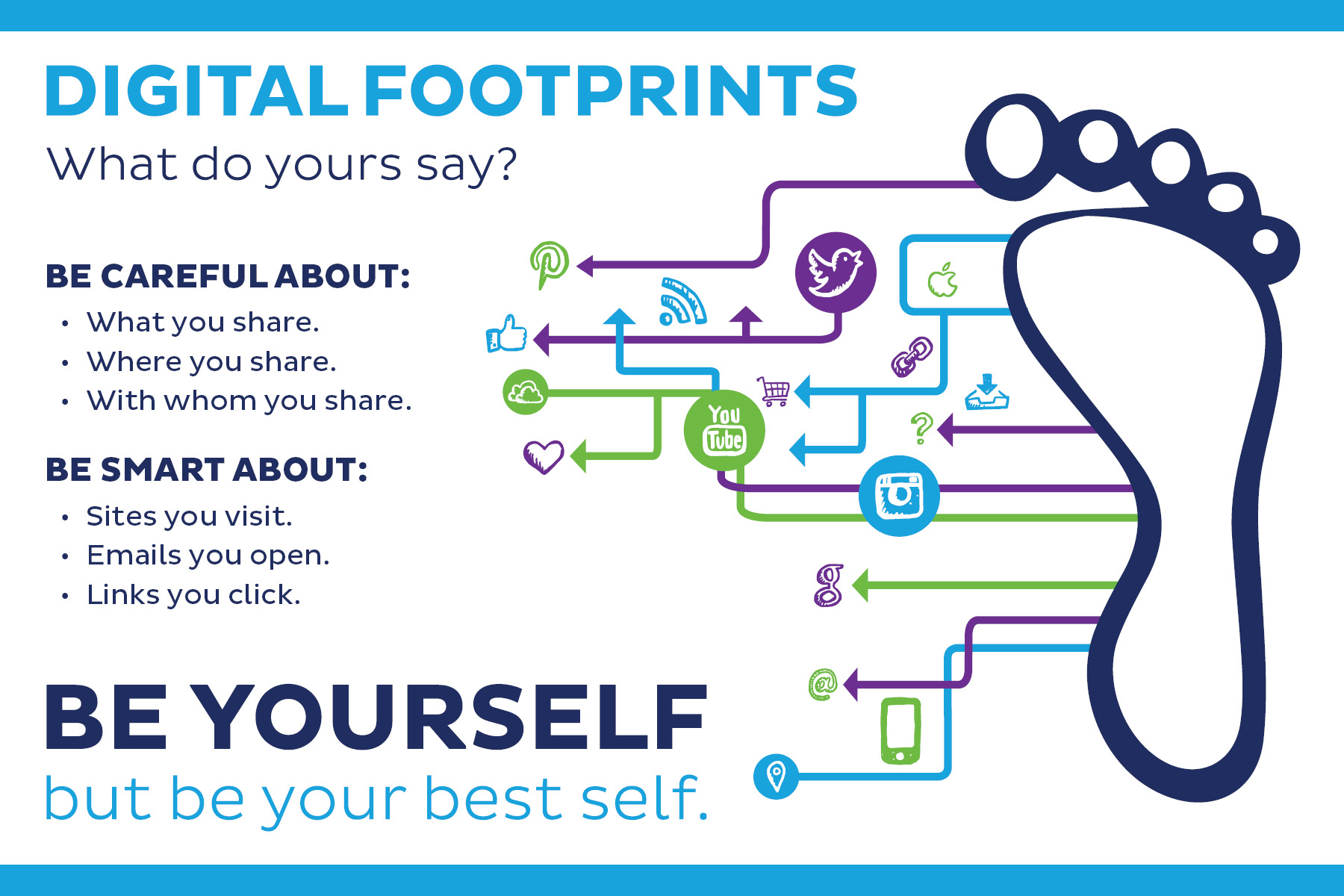IP Footprints: What They Are, Why They Matter, And How To Protect Yourself
So, you’ve probably heard about IP addresses, right? But have you ever thought about what happens when your IP address leaves digital footprints all over the internet? IP footprints are basically the trails your online activities leave behind, and they can reveal a lot more than you think. Whether you’re browsing, streaming, or shopping online, every move you make on the web can be tracked through your IP address. And guess what? That’s where things can get dicey if you’re not careful. Let’s dive into why IP footprints matter, how they work, and how you can protect yourself.
Nowadays, the internet is like a giant playground, but it’s also a place where your privacy can be compromised in a blink of an eye. Your IP footprint is like your digital fingerprint, and it can tell people where you are, what you’re doing, and even who you’re talking to online. So, if you’re someone who values privacy, it’s time to get educated on this topic.
In this article, we’ll break down everything you need to know about IP footprints, from what they are to how they affect your online security. We’ll also share some practical tips on how to minimize your digital footprint and stay safe in the wild west of the internet. So, buckle up and let’s get started!
Read also:Did Emily Compagno Get Married Unveiling The Truth Behind Her Personal Life
What Are IP Footprints and Why Should You Care?
Okay, let’s start with the basics. An IP footprint refers to the traceable data left behind by your IP address as you interact with the internet. Think of it like leaving footprints in the sand—every step you take can be seen by others. Your IP address is like your online address, and it’s used to identify your device and location on the web. But here’s the catch: it can also reveal sensitive information about you, such as your physical location, browsing habits, and even your personal preferences.
Now, why should you care? Well, in today’s digital age, your IP footprint can be exploited by cybercriminals, advertisers, and even governments. They can use this information to track your movements, target you with ads, or even steal your identity. That’s why understanding IP footprints is crucial if you want to protect your online privacy.
How Do IP Footprints Work?
When you connect to the internet, your device is assigned an IP address by your Internet Service Provider (ISP). This IP address is used to route data between your device and the websites you visit. However, every time you visit a website, your IP address is logged by the site’s server. This creates a trail of your online activity, which can be accessed by anyone with the right tools.
Here’s a quick breakdown of how IP footprints work:
- Your device connects to the internet using an IP address.
- Websites and online services log your IP address when you visit them.
- These logs can be used to track your online behavior and location.
Types of IP Addresses and Their Impact on Footprints
Not all IP addresses are created equal. There are two main types of IP addresses: static and dynamic. A static IP address is permanent and doesn’t change, while a dynamic IP address changes every time you connect to the internet. Both types have different implications for your IP footprint.
Static IP addresses are great for businesses that need consistent connectivity, but they also make it easier for others to track your online activity. On the other hand, dynamic IP addresses offer more anonymity, but they can still be traced if someone really wants to find you.
Read also:Mcdonalds Characters The Fascinating Backstories Behind Your Favorite Iconic Figures
Static vs. Dynamic IP: Which One Leaves a Bigger Footprint?
Static IP addresses tend to leave a bigger footprint because they don’t change. This makes it easier for websites and advertisers to track your online behavior over time. Dynamic IP addresses, on the other hand, change regularly, which can make it harder for others to follow your digital trail. However, even dynamic IP addresses can be traced if someone has access to your ISP’s logs.
The Risks of IP Footprints
So, what’s the big deal about IP footprints? Well, there are several risks associated with leaving your digital trail all over the internet. For starters, cybercriminals can use your IP address to launch attacks on your device or steal your personal information. Advertisers can also use your IP footprint to target you with annoying and intrusive ads. And let’s not forget about government surveillance programs that can use your IP address to monitor your online activity.
Here are some of the biggest risks of IP footprints:
- Cyberattacks: Hackers can use your IP address to gain access to your device or network.
- Data breaches: If a website you visit gets hacked, your IP address could be exposed in the breach.
- Privacy invasion: Advertisers and governments can use your IP footprint to track your online behavior.
Real-World Examples of IP Footprint Misuse
There have been several high-profile cases where IP footprints have been misused. For example, in 2013, the NSA was caught using IP addresses to track the online activity of millions of people around the world. More recently, hackers have used IP addresses to launch DDoS attacks on websites and steal sensitive information from users. These examples highlight the importance of protecting your IP footprint.
How to Minimize Your IP Footprint
Luckily, there are several ways you can minimize your IP footprint and protect your online privacy. Here are some practical tips:
- Use a Virtual Private Network (VPN): A VPN encrypts your internet connection and hides your IP address from prying eyes.
- Enable Private Browsing: Most browsers offer a private browsing mode that doesn’t log your IP address or browsing history.
- Use a Proxy Server: A proxy server acts as a middleman between your device and the internet, masking your IP address.
By implementing these strategies, you can significantly reduce your digital footprint and stay safe online.
The Role of VPNs in Protecting IP Footprints
VPNs are one of the most effective tools for protecting your IP footprint. They encrypt your internet traffic and route it through a server in a different location, making it virtually impossible for others to trace your online activity. Plus, many VPNs offer additional features like ad-blocking and malware protection, which can further enhance your online security.
Legal and Ethical Implications of IP Footprints
While IP footprints can be used for malicious purposes, they also have legitimate uses. For example, law enforcement agencies can use IP addresses to track down cybercriminals and solve crimes. However, the ethical implications of IP tracking are still up for debate. Should companies be allowed to collect and sell your IP data without your consent? Should governments be able to monitor your online activity without a warrant? These are questions that need to be addressed as we continue to navigate the digital age.
Regulations Around IP Footprints
Several countries have implemented regulations to protect people’s IP data. For example, the General Data Protection Regulation (GDPR) in the European Union requires companies to obtain explicit consent before collecting and processing IP data. Similarly, the California Consumer Privacy Act (CCPA) gives Californians the right to opt out of having their IP data sold to third parties. These regulations are a step in the right direction, but there’s still a long way to go.
IP Footprints and Online Security
Your IP footprint is closely tied to your online security. If your IP address is exposed, it can make you vulnerable to cyberattacks, data breaches, and other online threats. That’s why it’s important to take steps to protect your IP footprint and enhance your overall online security.
Here are some additional tips for boosting your online security:
- Use strong, unique passwords for all your accounts.
- Enable two-factor authentication wherever possible.
- Keep your software and antivirus programs up to date.
The Future of IP Footprints
As technology continues to evolve, the concept of IP footprints is likely to change as well. For example, the rise of IPv6 addresses, which offer more security and anonymity than traditional IPv4 addresses, could make it harder for cybercriminals to track your online activity. However, as long as people rely on the internet for communication, commerce, and entertainment, IP footprints will remain a crucial part of the digital landscape.
Conclusion
In conclusion, IP footprints are a double-edged sword. On one hand, they allow websites and services to function properly and provide personalized experiences for users. On the other hand, they can be exploited by cybercriminals, advertisers, and governments to track and monitor your online activity. That’s why it’s important to understand what IP footprints are, how they work, and how you can protect yourself.
By using tools like VPNs, private browsing, and proxy servers, you can minimize your IP footprint and enhance your online privacy. You should also stay informed about the latest regulations and developments in the world of IP tracking to ensure that your rights are protected.
So, what’s next? Take action today by implementing the strategies we’ve discussed and spreading the word about IP footprints. Share this article with your friends and family, and let’s work together to create a safer and more private internet for everyone!
Table of Contents
- What Are IP Footprints and Why Should You Care?
- How Do IP Footprints Work?
- Types of IP Addresses and Their Impact on Footprints
- The Risks of IP Footprints
- How to Minimize Your IP Footprint
- Legal and Ethical Implications of IP Footprints
- IP Footprints and Online Security
- The Future of IP Footprints
- Conclusion
Article Recommendations


